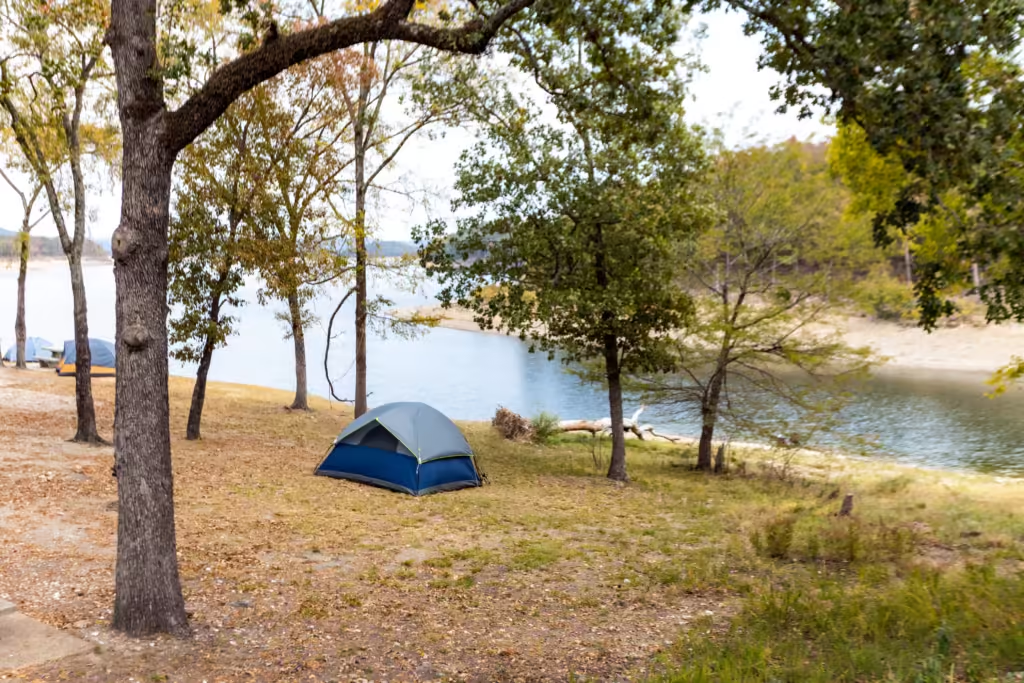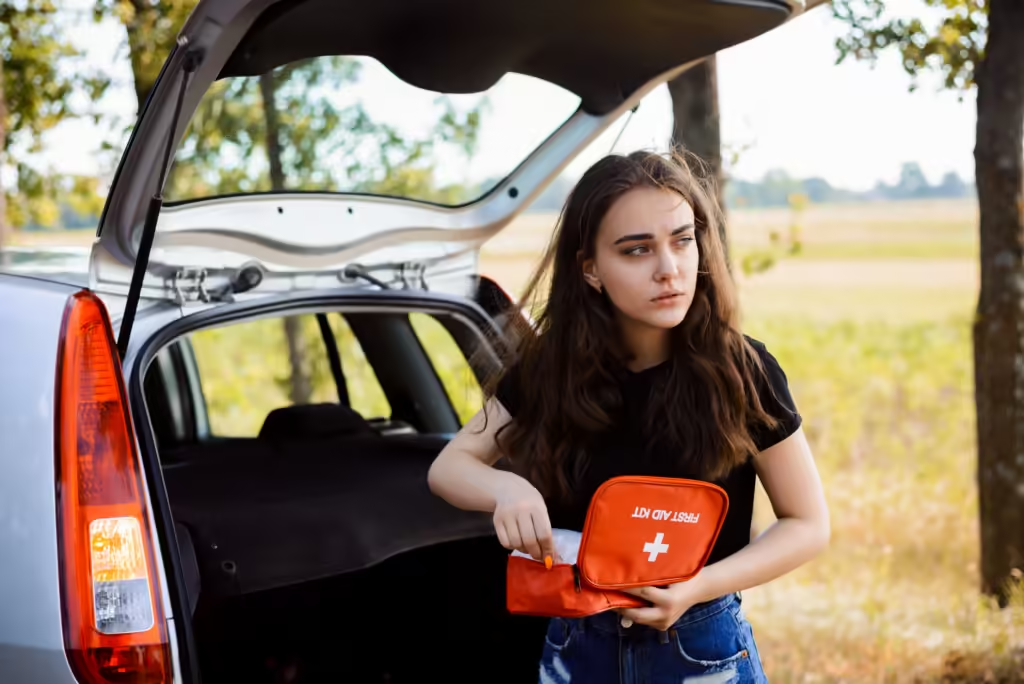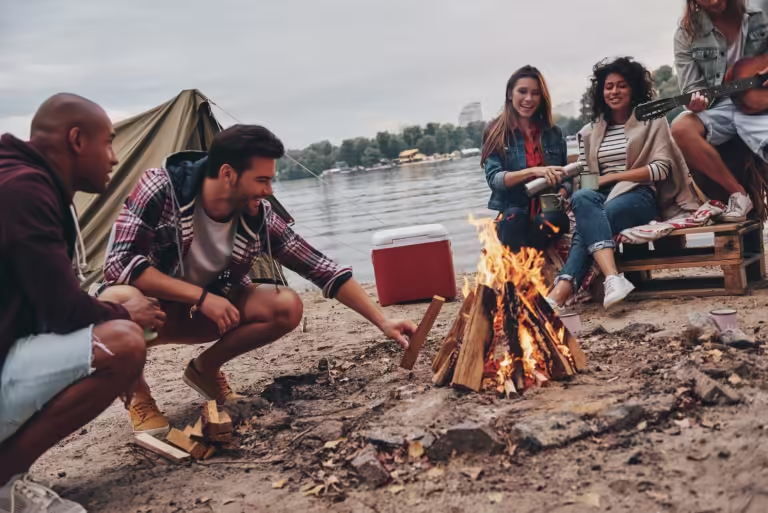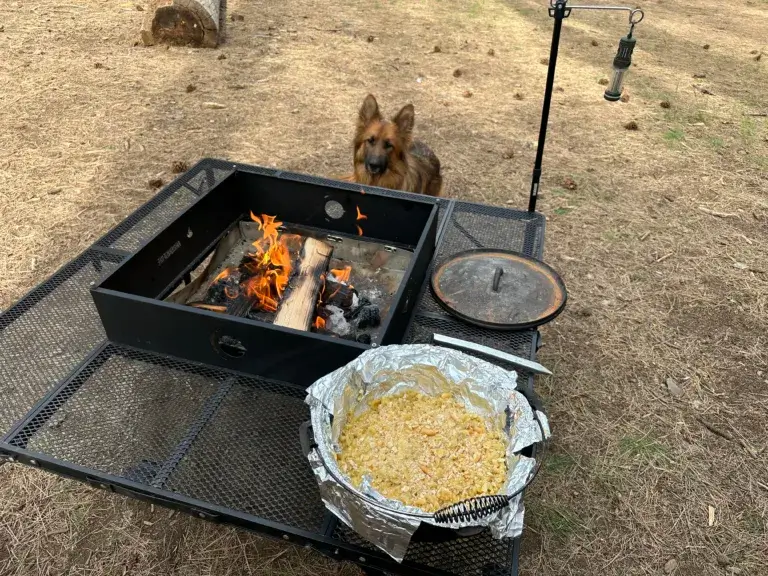How to Keep Bugs Away While Camping: Simple Tricks for a Bite-Free Adventure
Let’s be real, bugs can ruin the vibe when you’re out enjoying nature. But you don’t have to let them win! With a few clever tricks, you can keep those annoying critters at bay and turn your camping trip into a real adventure.

Mix up some bug repellents, protective clothing, and smart campsite choices, and you’ll cut down on bug encounters big time. It’s all about being prepared and outsmarting those tiny invaders. Trust me, you’ll thank yourself later when you’re not itching all night.
I’ve lost count of how many camping trips I’ve been on where bugs tried to crash the party. But don’t let that scare you off! With these tips, you’ll spend more time making s’mores than swatting mosquitoes.
Key Takeaways
- Pick a breezy, dry campsite away from standing water
- Wear protective clothing and use insect repellents
- Keep your campsite tidy and free of food scraps
Choosing the Right Campsite
Picking a good spot for camp makes a huge difference in keeping bugs away. Over the years, I’ve picked up some tricks for finding those sweet, bug-free zones.
Avoid Stagnant Water
Mosquitoes love still water, so I always avoid swampy spots. Ponds, puddles, even a forgotten bucket of rainwater, those are basically mosquito hotels. I try to set up camp at least 200 feet from any standing water.
If avoiding water isn’t possible, I look for a spot near a moving stream. Flowing water doesn’t attract as many bugs.
I also watch for low spots that might collect water after a rain. Setting up on higher ground keeps me dry and helps keep the bugs away.
Use Natural Land Features
Nature gives us some solid bug-fighting tools! I love camping on breezy hilltops or ridges. The wind makes it tough for flying insects to stick around.
Rocky areas are usually less buggy, too. There’s not much for insects to hide in, and ticks seem to hate crawling over bare rock.
Sunny clearings can be a nice option. Most bugs prefer shade, so open spaces with plenty of sunlight are usually more comfortable. Just don’t forget the sunscreen, I’ve learned that one the hard way.
Clear the Area
Before I pitch my tent, I always do a quick clean-up. First, I clear away tall grass or weeds. That cuts down on hiding spots for ticks and other critters.
Raking away leaf litter helps too. It exposes any ant hills or insect nests I might have missed. Better to find those before I unroll my sleeping bag!
And I always check for and remove any citrus peels or food scraps left by earlier campers. Those attract ants and all sorts of pests. A clean campsite is a happy (and bug-free) campsite!
Setting Up Your Camp to Deter Bugs
Let’s get into some smart ways to set up camp that’ll keep bugs from crashing your outdoor party. I’ve tried all of these and they do make a difference.
Proper Tent Setup
Keeping bugs out of your sleeping area starts with proper tent setup. I always pick a spot that’s high and dry, far from standing water where mosquitoes love to breed.
Before pitching the tent, I clear away grass and debris. That way, there are fewer hiding spots for creepy crawlies.
Mosquito nets over tent doors are a total game-changer. I also check for holes or tears in the tent fabric and patch them up.
And here’s a simple one: keep the tent zipped up when you’re not using it. It’s easy to forget, but it helps keep your sleeping space bug-free.
Effective Use of Screen Rooms
Screen rooms are my secret weapon for bug-free camping. They give you a safe, insect-free zone to relax and eat without swatting at flies.
I always set up my screen room in a clear area, away from trees or bushes where bugs could be hiding. It’s like having your own tiny fortress!
Quick checklist for screen room setup:
- Pick a flat, dry spot
- Clear away debris
- Secure all sides to the ground
- Double-check for gaps or tears
Eating inside a screen room is a treat. No more waving away mosquitoes while trying to enjoy your meal!
Utilizing Fire and Smoke
A cozy campfire isn’t just for marshmallows; it’s also great for keeping bugs away. The smoke works as a natural repellent.
Here are my fire safety basics:
- Pick a clear spot, away from overhanging branches
- Use a fire pit if there’s one around
- Keep water close by, just in case
- Never leave the fire alone
Sometimes I toss sage or rosemary into the flames. The smell is awesome for us, but bugs seem to hate it!
Just remember, smoke helps but isn’t magic. I always use other bug-fighting tricks along with the campfire for the best results.
Appropriate Camping Gear and Clothing

The right clothes and gear can totally make or break your camping trip when it comes to bugs. Let’s look at some smart picks that’ll help you enjoy the outdoors without becoming a bug buffet.
The Right Fabric Choices
Clothing is your first line of defense out there. I go for light-colored clothes, since they make it harder for mosquitoes to spot me. Long pants and long sleeves in lightweight, breathable fabrics are my go-to.
Tight-weave materials like nylon or polyester work wonders. Bugs have a tough time biting through them, and they dry fast if you get sweaty or caught in a drizzle.
For extra protection, I sometimes tuck my pants into my socks. Not exactly runway fashion, but hey, it keeps the ticks out!
Accessorizing for Bug Protection
Accessories can be fun and functional. A wide-brimmed hat is a camper’s best friend. It keeps the sun off and creates a little bug-free zone around your face.
I never camp without my trusty bug-repelling bracelets. They’re like little force fields for your wrists. And a bandana? Super handy for wiping sweat or covering your face if the bugs get too bold.
On buggy evenings, I throw on a lightweight mesh jacket. It’s like wearing your own personal screened-in porch, seriously, try it!
DEET-Free Bands, Individually Wrapped (Packaging May Vary)
Choosing the Right Bug Repellent
When it comes to bug sprays, there are a lot of options. DEET is the classic; it works, no doubt. We usually go for sprays with about 30% DEET, but honestly, some of us don’t love the smell.
No problem. Picaridin is another good choice. It’s odorless and feels less sticky, which is great for those hot, sweaty hikes.
If you’ve got kids along, pick something with a lower concentration. Safety always comes first, right?
Stay protected outdoors with this top-rated, family-safe insect repellent spray featuring 20% Picaridin — a powerful, fragrance-free formula that repels mosquitoes and ticks for up to 12 hours, and flies, gnats, and chiggers for up to 8. More effective than DEET against biting flies, it’s gentle on skin, non-greasy, quick-drying, and won’t damage gear or clothing. Perfect for camping, hiking, fishing, and everyday outdoor fun, it comes in two convenient 6-oz BOV cans that spray in any direction. For maximum protection, pair with Sawyer Permethrin for clothing and gear.
Using Permethrin-Treated Gear
Here’s a tip that changed the game for me: permethrin! This insect repellent goes on your clothes and gear, not your skin, and creates an invisible shield.
You can buy pre-treated gear or treat your own stuff at home. It’s easy and lasts through a few washes. Just don’t spray it on your skin, gear only!
Permethrin works great on:
- Tents
- Sleeping bags
- Backpacks
- Hats
I’ve found it especially helpful on socks and shoes. No more bugs crawling up your legs in the night!
Proactive Bug Repellent Strategies
Let’s talk about how to keep bugs away before they even show up.
Choosing the Right Bug Repellent
When it comes to bug repellents, there are so many choices. DEET is the classic heavy hitter – 30% DEET sprays work like magic, but I’m not a huge fan of the smell.
Picaridin is a great alternative. It’s odorless and doesn’t leave you feeling sticky, which is perfect for those sweaty summer hikes.
Got kids along? Look for kid-friendly repellents with lower concentrations.
Natural Alternatives to Traditional Repellents
Mother Nature’s got our backs, too! We’re big fans of essential oils for keeping bugs at bay.
Eucalyptus oil is our go-to. It smells amazing, and bugs can’t stand it.
Citronella candles are another classic. They set a cozy mood around the campfire and help keep mosquitoes at a distance.
We’ve also had great luck with lemon eucalyptus oil. It’s EPA-approved, works like a charm, and honestly, it feels like we’re treating ourselves to a spa day instead of braving a bug-infested forest.
DIY Options for Bug Deterrence
Feeling crafty? We’ve got some homemade solutions that’ll make you feel like a camping MacGyver.
One of our favorites is the DIY bug trap. All you need is a plastic bottle, some sugar water, and plastic wrap.
Here’s a quick recipe:
- Cut the top off a plastic bottle.
- Mix 1/4 cup sugar with 1 cup hot water.
- Let it cool and pour into the bottle.
- Cover with plastic wrap and poke small holes.
Voila! You’ve got yourself a bug magnet that’ll keep the critters away from you.
We also whip up our own spray with witch hazel and essential oils. It’s gentle on our skin and tough on bugs.
Maintaining a Clean and Orderly Camp
Keeping our campsite tidy is key to a bug-free outdoor adventure. Smart food storage, regular cleanup, and proper trash handling help make our camp less attractive to insects.
Food Storage and Disposal
Bugs love our snacks as much as we do! That’s why we need to be clever about how we store our goodies.
We always use airtight containers for our food.
For dishes, we wash them right after eating.
We use biodegradable soap and dispose of the water far from our campsite. When we’re done with a meal, we pack up any leftovers tightly.
Regular Campsite Cleanup
A clean camp is a happy camp and a bug-free one, too! We tidy up throughout the day and collect bits of litter.
We shake out our sleeping bags and air out the tent daily.
This helps keep crawling critters from moving in. Don’t forget about personal hygiene! We keep our toiletries in sealed bags.
Handling Trash and Leftovers
Trash is like a bullseye for bugs, so we treat it with extra care. We use sealed containers for our garbage.
We never leave food scraps lying around. Even tiny crumbs can be a feast for insects.
We collect all our leftovers and store them securely, just like we do with our main food stash. At night, we make sure all our trash is locked up tight.
Some campsites have bear-proof containers. We love using these! If not, we hang our trash high in a tree, away from our sleeping area.
Natural Methods to Keep Bugs At Bay
We’ve got some great tricks up our sleeves to ward off bugs naturally! Herb-based repellents, essential oils, and simple home remedies can help us enjoy our camping trips without becoming a mosquito buffet.
Herbal Repellents and Their Uses
Nature’s given us some amazing plants to keep the bugs away. Citronella is a classic, we use citronella candles around our campsite.
Sage is another winner. Burning a bundle creates a bug-repelling smoke.
Lavender isn’t just for relaxation; insects hate its sweet scent! We’ve had great success with catnip, too. It’s super easy to grow and rub on our skin.
Rosemary and thyme are two more herbs that bugs can’t stand. We often toss a few sprigs on the campfire for a pleasant aroma that keeps mosquitoes at bay.
Basil and lemongrass are our go-to plants for a natural bug barrier. We’ve even started growing them in pots to bring camping.
Natural Oils and Their Efficacy
We’ve found tea tree oil to be incredibly effective. Mix it with some lavender oil, and you’ve got a powerful combo.
We make a simple spray with:
- 1 cup water
- 1 cup white vinegar
- 25 drops tea tree oil
- 25 drops lavender oil
Just shake it up in a spray bottle and apply every few hours. It works wonders!
Peppermint oil is another favorite of ours. Its strong scent confuses insects, keeping them away.
We like to dab a bit on our clothes or mix it with lotion for our skin. Neem oil is a bit smelly, but it works!
We usually dilute it with a carrier oil before applying. Bugs absolutely hate it!
Home Remedies Worth Trying
We’ve stumbled upon some surprising home remedies that really do the trick. Rubbing an onion or a garlic clove on your skin can keep bugs away.
It might not be the most pleasant smell, but it sure beats getting eaten alive! Vinegar and lemon juice make a great DIY bug spray. We mix equal parts in a spray bottle and apply liberally.
The acidic smell repels insects but fades quickly for us. One of our favorite tricks is using mint. We crush fresh mint leaves and rub them on our skin and clothes.
It leaves us smelling fresh and bug-free! We’ve even had success with ordinary household spices. Cinnamon, for example, is great for sprinkling around our campsite.
Protect your family and pets naturally with this effective plant spray made from full-spectrum neem oil and enhanced with peppermint oil. While it nourishes plants indoors and out, it also doubles as a gentle, natural bug repellent for people and pets when used as directed—making it a versatile, safe solution for your home and garden.
Behavioral Adjustments to Reduce Bug Interactions

Timing Your Outdoor Activities
We’ve found that bugs are most active during certain times of day. Early morning and late afternoon tend to be peak bug hours.
That’s when they’re out in full force, looking for their next meal (which could be us!). To dodge the bug rush, we like to plan our hikes and outdoor activities for midday.
The sun’s heat usually keeps most insects at bay. If we’re feeling adventurous, a moonlit walk can be magical and bug-free!
Mosquitoes love dusk. We try to be inside our tents or around the campfire when the sun starts to set.
Understanding Bug Behavior
Knowing how bugs think helps us stay one step ahead. Most insects are attracted to standing water, so we avoid camping near ponds or swampy areas.
Bugs also love dark clothing. We opt for light-colored outfits when we’re in bug territory.
Here’s a fun fact: bees and wasps are less aggressive in the morning. If we need to move a chair that’s attracting some buzzy friends, we do it early. They’re still sleepy and less likely to sting.
We’ve learned that flies hate moving air. A small portable fan can be a game-changer at the campsite. It keeps us cool and bug-free!
Avoiding Attracting Scents
Bugs have super-sniffers, and certain smells draw them in like a magnet. We’ve learned to be careful about the scents we bring to camp.
Perfumes, scented lotions, and fruity shampoos? Big no-nos in bug country. We stick to unscented products when we’re roughing it. It’s not glamorous, but neither are bug bites!
Some foods are bug magnets too. We try to avoid eating bananas or drinking beer outside the tent. Who knew bugs had such sophisticated tastes?
On the flip side, some smells repel bugs. Rubbing fresh sage or rosemary on our skin can help deter them.
Remember, citrus peels can be great bug deterrents. We save our orange peels and rub them on our arms and legs. It’s a sweet-smelling shield against those buzzing invaders!
Special Considerations for Kids and Pets

Keeping our little ones and furry friends safe from bugs is super important when we’re camping. We’ve got some great tips to share that will help protect the whole family from pesky insects and potential health risks.
Child-Safe Repellents
When it comes to our kiddos, we need to be extra careful about what we put on their skin. We’ve found some awesome child-friendly bug repellents that work like a charm.
Look for products with natural ingredients like citronella or lemon eucalyptus oil. We always test a small patch of skin first to check for any reactions.
It’s a good idea to avoid putting repellent on our kids’ hands, as they might rub their eyes or put their fingers in their mouths. For babies under 2 months, we skip the repellent altogether and use mosquito nets instead.
Protecting Your Pets
Our furry camping buddies need protection too! Before we use any insect repellents on our pets, we check with our vet first.
Some human products can be harmful to animals. There are special pet-friendly bug sprays we like to use. Our go to is Wondercide.
We apply them to our pets’ fur, but we always avoid their face and paws. For extra protection, pet-safe flea and tick collars have saved us more than once.
We also make sure our pets have a cozy, bug-free spot to sleep.
A raised bed or a tent with mesh sides keeps them comfy and bite-free all night long. Nothing beats waking up to a happy, itch-free pup.
If you're heading out camping and want a natural way to keep bugs off your pets and out of your tent, this plant-powered spray is a must-have. Made with proven essential oils, it effectively kills and repels 98–100% of fleas, ticks, and mosquitoes—even breaking the flea life cycle by targeting eggs, larvae, and adults. Safe for dogs and cats of all ages when used as directed, it’s a great alternative to chemical treatments like collars and pills. You can use it directly on your pet, their bedding, and even around your campsite for extra protection. With a fresh lemongrass scent and gentle, non-toxic formula, it keeps pests away while keeping your camping crew safe and comfortable.
Emergency Preparedness for Bug Bites and Infestations

Camping means we need to be ready for any bug problems that might pop up. Let’s talk about handling bites and what to do if bugs take over our campsite.
First Aid for Insect Bites
Ouch! Bug bites can really put a damper on our fun. We always pack a small first aid kit with antihistamine cream and pain relievers.
These help with itching and swelling from mosquito bites or stings. For tick bites, we’re extra careful and bring fine-tipped tweezers to remove them safely.
After removing a tick, we clean the area with soap and water or rubbing alcohol. Spider bites can be tricky, so if we notice any weird symptoms, we don’t hesitate to seek medical help.
For wasp stings, a paste of baking soda and water helps soothe the pain. Cool compresses work wonders, too.
When Bugs Overwhelm the Campsite
Sometimes, despite our best efforts, bugs overrun the campsite. Don’t worry, we’ve got a few tricks up our sleeves!
If mosquitoes are the main problem, we create a smoke barrier by burning sage or rosemary in the campfire. The smell is nice for us, but not for them. We also burn incense all around camp.
For flying insects, citrus peels can be a great deterrent. We rub them on our skin or place them around the campsite, and it actually smells pretty fresh.
If things get really bad, we’re not ashamed to retreat to our tents or even pack up and move.
Frequently Asked Questions
We’ve got answers to your burning questions about keeping bugs at bay while camping! From natural repellents to DIY solutions, we’ll share our favorite tricks for enjoying the great outdoors bug-free.
What are some natural methods to repel insects during a camping trip?
Mother Nature’s got our backs when it comes to bug control! We use citronella candles around our campsite. They smell great and help keep mosquitoes away.
Another trick we swear by is sprinkling coffee grounds around our tent. Bugs hate the smell, but we can’t get enough of that coffee aroma!
Which DIY solutions work best for keeping the creepy crawlies at bay in the great outdoors?
We’re all about getting crafty with our bug protection. One of our go-to remedies is a mix of water and essential oils in a spray bottle. Peppermint, eucalyptus, and lavender work wonders.
We also like to make our own citronella torches using empty wine bottles and cotton wicks. It’s a fun project and keeps the bugs away in style!
When chilling in my camp chair, how can I ensure bugs keep their distance?
Relaxing bug-free is totally possible! We always bring a portable fan to create a breeze around our seating area.
Mosquitoes are weak flyers and can’t handle the wind. We also wear light-colored clothing, bugs are less attracted to lighter hues.
Got any tips for making my camping tent a no-fly zone for pesky pests?
Keeping our sleeping quarters bug-free is a top priority! We always make sure to zip up our tent whenever we’re not inside.
We like to hang mosquito netting around our tent entrance for an extra layer of protection. It’s like a magical force field against flying pests!
Could you share the secret on which scents make bugs turn tail and run?
Bugs have some pretty strong opinions when it comes to smells! We’ve found that citronella, peppermint, and eucalyptus are top-notch bug repellents.
Garlic is another scent that bugs can’t stand. We love to crush a few cloves and spread them around our campsite. It might not be great for our breath, but it sure keeps the bugs away!
What’s the best way to avoid becoming a bug buffet while enjoying nature?
Timing matters a lot when you want to dodge bug bites. Honestly, we usually plan our time outside for midday since mosquitoes seem less interested then.
Covering up helps, too. We reach for long sleeves and pants, even if it means sweating a little.
Yeah, it can get warm, but it’s better than letting bugs feast on you, right?













